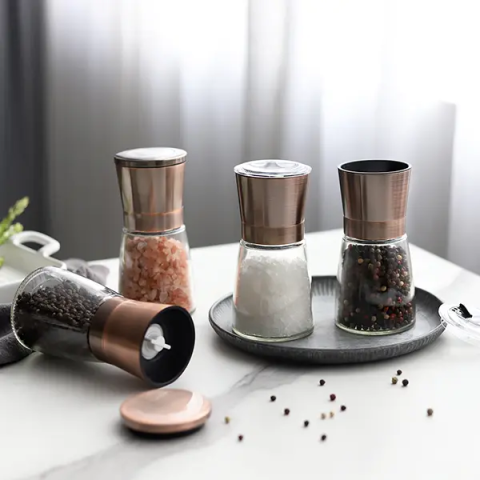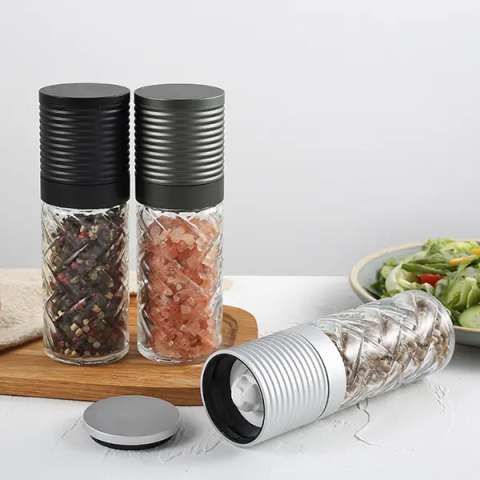A common question often arises among cooking enthusiasts: Why can't you grind salt in a pepper grinder? Understanding this distinction is essential for successful culinary endeavors. This blog aims to debunk common myths surrounding this topic and provide practical advice on selecting the right tool for each seasoning, ensuring a delightful cooking experience.

The Mechanics of Grinders
Pepper grinders, also known as pepper mills, are specifically designed to grind whole peppercorns into finer particles. The core components of a pepper grinder include:
1. Grinding Mechanism: Typically made of stainless steel, ceramic, or acrylic, the grinding mechanism is engineered to crush and grind peppercorns efficiently.
2. Adjustment Knob: This allows the user to control the coarseness of the grind, ranging from fine to coarse.
3. Housing and Hopper: These parts hold the peppercorns in place and ensure a steady flow into the grinding mechanism.
Salt is fundamentally different from pepper in several ways:
1. Hardness: Salt crystals, especially those in sea salt and rock salt, are significantly harder than peppercorns. This hardness can damage or dull the grinding mechanism of a pepper grinder.
2. Corrosiveness: Salt is highly corrosive, especially in the presence of moisture. This can lead to rust and deterioration of metal parts in a pepper grinder, particularly if it is not made from corrosion-resistant materials.
3. Grain Size and Shape: Salt crystals are often larger and more irregular in shape compared to the uniform spherical shape of peppercorns. This irregularity can cause jamming and inconsistent grinding.
Consequences of Using Salt in a Pepper Grinder
1. Damage to the Grinder: The hardness of salt can dull or break the grinding mechanism, leading to inefficient grinding or complete failure.
2. Corrosion: Salt can cause rust and corrosion in metal parts, especially if the grinder is not adequately cleaned and dried after use.
3. Cross-Contamination: Residual salt in a pepper grinder can mix with peppercorns, affecting the flavor and integrity of both seasonings.
Best Practices for Grinding Salt
1. Use a Dedicated Salt Grinder
2. Regular Cleaning
Selecting the Right Grinder
When choosing a grinder for salt, consider the following factors:
1. Material: Look for grinders with ceramic or stainless steel mechanisms that are resistant to corrosion.
2. Adjustability: Ensure the grinder allows for different levels of coarseness to suit various culinary needs.
3. Durability: Opt for well-built grinders from reputable brands known for their quality and longevity.
At Chinagama, our spice mill designs primarily use ceramic burrs, which effectively grind salt and pepper without the worry of corrosion. The special structure and larger diameter of our grinding mechanism improve efficiency and ensure consistency with every grind. We also offer stainless steel burrs as an option. For bulk purchases and customized salt and pepper grinders, please consider Chinagama as your trusted manufacturer.

Media Contact
Company Name: Chinagama Industrial Corporation
Email: Send Email
Phone: ?86-0574-27729216
Address:No. 59, Kechuang North Road, Jishigang Town
City: Ningbo
State: Zhejiang
Country: China
Website: https://www.chinagama.com/




